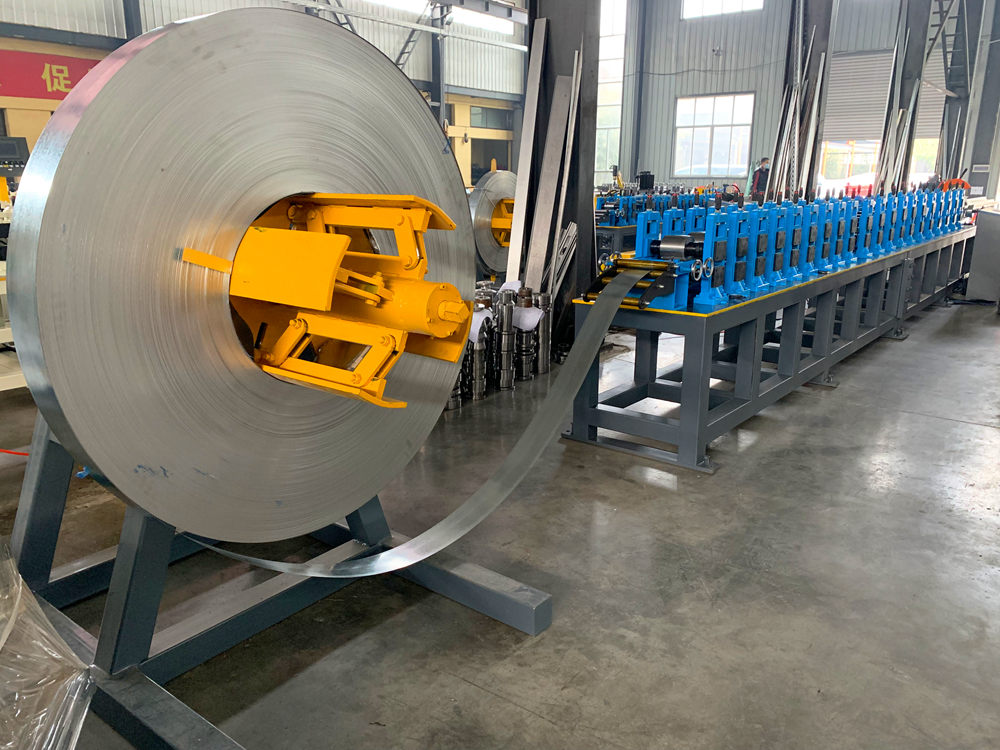
Understanding Pipe Thread Rolling Machines A Key Component of Modern Manufacturing
In the realm of manufacturing, precision and efficiency are paramount, especially in industries that depend heavily on piping systems, such as construction, oil and gas, and automotive sectors. One critical piece of equipment that has revolutionized the way threaded pipes are produced is the pipe thread rolling machine. This machine is pivotal in enhancing the quality and performance of threaded components, meeting the increasingly stringent demands of modern applications.
What is a Pipe Thread Rolling Machine?
A pipe thread rolling machine is a specialized tool designed to create helical threads on pipes or tubular materials. Unlike traditional machining methods, such as cutting or grinding, thread rolling uses a process called cold forming. This technique involves deforming the material to create threads, enhancing the metal's strength and reducing waste. The rolling action compresses the material, aligning the grain structure and creating a more durable product.
Advantages of Thread Rolling
There are numerous advantages to using a pipe thread rolling machine over conventional threading techniques. One primary benefit is the improved mechanical properties of the finished product. As the material is cold-formed, the rolling process can increase the tensile strength and fatigue resistance of the threads. This is crucial for applications subjected to high stress and pressure, such as oil pipelines or high-pressure steam systems.
Additionally, the cold forming process produces lesser scrap compared to cutting methods. Since the material is not removed but reshaped, manufacturers reduce material waste, leading to lower costs and enhanced sustainability. Furthermore, the thread rolling process allows for a smoother surface finish on the threads, which can improve sealing and reduce the risk of leaks in piping systems.
Applications in Various Industries

Pipe thread rolling machines are utilized across various industries. In the oil and gas sector, for example, these machines are essential for producing threaded connections on pipes used in drilling and production. The durability and reliability of the threads formed through rolling machines are critical to ensure safe and effective operations in harsh environments.
In the construction industry, these machines are used to create threaded components for scaffolding, water supply systems, and HVAC installations. The ability to produce threads that meet specific standards and specifications is vital to the safety and functionality of these systems.
The automotive industry also benefits from pipe thread rolling machines, as they are used to manufacture components such as fuel lines and hydraulic systems. The high precision and strength of rolled threads ensure the reliability of critical automotive systems.
Automation and Technology Integration
With advancements in manufacturing technologies, modern pipe thread rolling machines have become increasingly automated. CNC (Computer Numerical Control) systems allow for precise programming and operation, resulting in higher production efficiency and consistency. Automation not only increases productivity but also reduces the risk of human error, leading to higher quality output.
Moreover, integrating smart technologies such as IoT (Internet of Things) can provide real-time monitoring and predictive maintenance for these machines. This innovation ensures optimal performance and extends the lifespan of the equipment, ultimately contributing to cost savings for manufacturers.
Conclusion
In conclusion, pipe thread rolling machines play a vital role in the manufacturing sector by delivering high-quality threaded pipes and components. Their advantages, including enhanced strength, reduced waste, and improved surface finishes, make them indispensable to various industries. As technological advancements continue to emerge, these machines are poised to become even more efficient and reliable, further solidifying their importance in the manufacturing landscape. Embracing this technology will undoubtedly lead manufacturers toward greater productivity and quality in their threaded products.